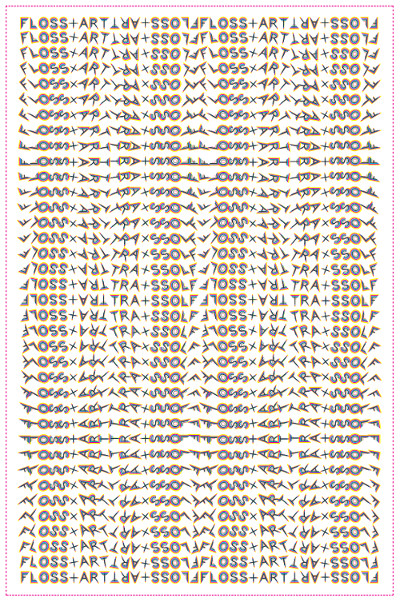Matthew Fuller (ed.): Software Studies: A Lexicon (2008)
Filed under book | Tags: · algorithm, code, computing, ethnocomputing, interactivity, interface, programming, software, software art, software studies

“This collection of short expository, critical, and speculative texts offers a field guide to the cultural, political, social, and aesthetic impact of software. Computing and digital media are essential to the way we work and live, and much has been said about their influence. But the very material of software has often been left invisible. In Software Studies, computer scientists, artists, designers, cultural theorists, programmers, and others from a range of disciplines each take on a key topic in the understanding of software and the work that surrounds it. These include algorithms; logical structures; ways of thinking and doing that leak out of the domain of logic and into everyday life; the value and aesthetic judgments built into computing; programming’s own subcultures; and the tightly formulated building blocks that work to make, name, multiply, control, and interweave reality.
The growing importance of software requires a new kind of cultural theory that can understand the politics of pixels or the poetry of a loop and engage in the microanalysis of everyday digital objects. The contributors to Software Studies are both literate in computing (and involved in some way in the production of software) and active in making and theorizing culture. Software Studies offers not only studies of software but proposes an agenda for a discipline that sees software as an object of study from new perspectives.”
Contributors: Alison Adam, Wilfried Hou Je Bek, Morten Breinbjerg, Ted Byfield, Wendy Hui Kyong Chun, Geoff Cox, Florian Cramer, Cecile Crutzen, Marco Deseriis, Ron Eglash, Matthew Fuller, Andrew Goffey, Steve Goodman, Olga Goriunova, Graham Harwood, Friedrich Kittler, Erna Kotkamp, Joasia Krysa, Adrian Mackenzie, Lev Manovich, Michael Mateas, Nick Montfort, Michael Murtaugh, Jussi Parikka, Soren Pold, Derek Robinson, Warren Sack, Grzesiek Sedek, Alexei Shulgin, Matti Tedre, Adrian Ward, Richard Wright, Simon Yuill.
Publisher The MIT Press, 2008
ISBN 0262062747, 9780262062749
334 pages
PDF (updated on 2015-7-9)
Comment (0)Aymeric Mansoux, Marloes de Valk (eds.): FLOSS+Art (2008)
Filed under book | Tags: · art, code, collaboration, copyright, design, digital art, floss, free software, internet, open source, software, software art

What does Free and Open Source software (FLOSS) provide to artists and designers – beyond just free alternatives to established tools from Photoshop to Final Cut?
FLOSS+Art is the first book to answer this question. It shows how the value of Free Software lies in its differences and creative challenges, as opposed to out-of-the-box and off-the-shelf solutions; how it allows to work and collaborate differently with computers, and therefore enable different kinds of art and design.
The Internet – whose infrastructure is based on free software and open standards – is an obvious example of such an adaptable, collaborative artistic medium. FLOSS+Art also covers more traditional artistic domains such as graphic and audiovisual design, and how they shift from customer-centric to community-driven work.
FLOSS+Art critically reflects on the growing relationship between Free Software philosophy, open content and digital art. It provides first-hand insight into its social, political and economic myths and realities.
With contributions by: Fabianne Balvedi, Florian Cramer, Sher Doruff, Nancy Mauro Flude, Olga Goriunova, Dave Griffiths, Ross Harley, Martin Howse, Shahee Ilyas, Ricardo Lafuente, Ivan Monroy Lopez, Thor Magnusson, Alex McLean, Rob Myers, Alejandra Pérez Núñez, Eleonora Oreggia, oRx-qX, Julien Ottavi, Michael van Schaik, Femke Snelting, Pedro Soler, Hans Christoph Steiner, Prodromos Tsiavos, Simon Yuill.
Publisher Goto10, Poitiers, in association with Mute Publishing, London, November 2008
Triple licensed GNU GPL, GNU FDL and Free Art License. Rather than just providing a “free” PDF, FLOSS+Art.v1.1.eBook-GOTO10 is also available and contains all the Fonts, Images, PDF and Scribus source files that were used to make the book.
ISBN 1906496188, 9781906496180
320 pages
Reviews: Tony D. Sampson (Mute, 2009), Alessandro Ludovico (Neural, 2009), Jörn Nettingsmeier (eContact, 2009).
PDF
Source files (torrent, updated on 2019-12-1)
Source files (updated on 2022-8-28)

